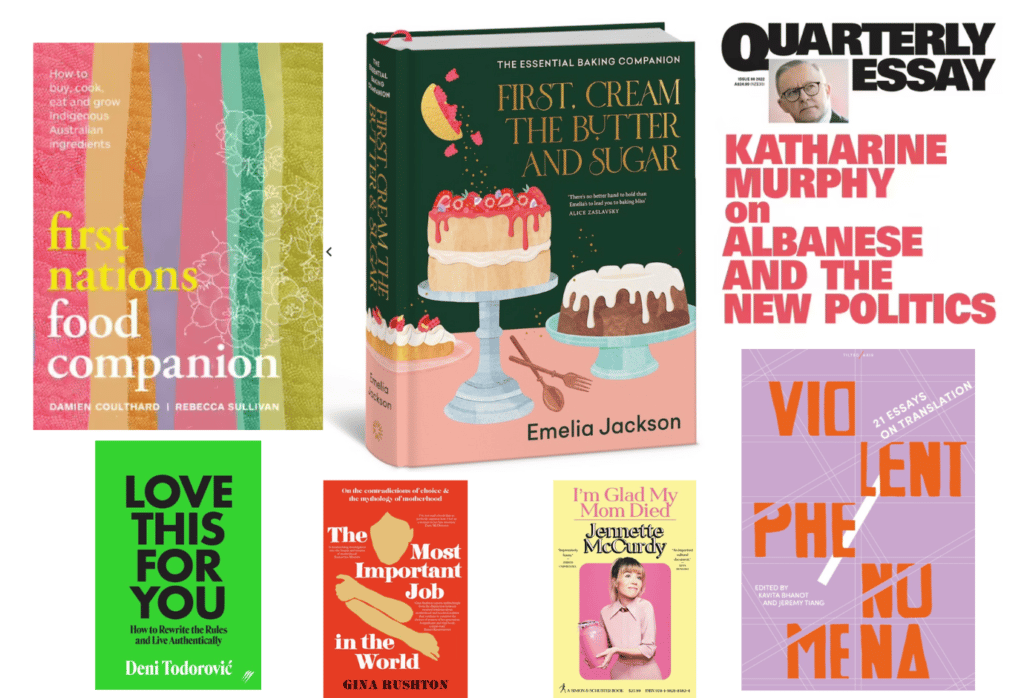We’ve read incredible new books this year at Women’s Agenda HQ, and wanted to share our top picks.
From motherhood to identity politics, memoirs that will make you laugh and cry, to race, immigration and the ethics of translation – this year has seen a broad spectrum of ideas explored in sensational new titles.
Check out non-fiction favourites from our team below. And you can also take a look at our fiction list here.
The Most Important Job in the World by Gina Rushton
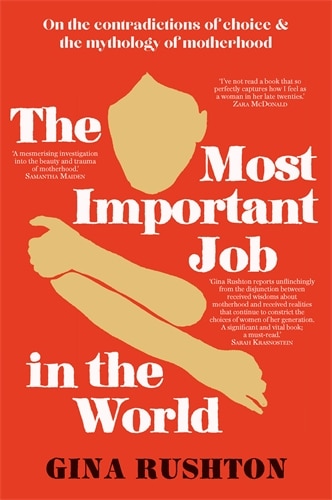
I’ve long admired Gina Rushton’s excellent reporting on reproductive rights in Australia, so I was so excited to dive into this book. As a mid-20 something woman, I’m so glad that I read this book when I did. It gave my climate-anxiety riddled brain some much needed clarity, as I consider whether parenthood is something I see for myself in the future. Highly recommend for anyone (not just those considering parenthood)! – Madeline Hislop
Love This For You by Deni Todorovic
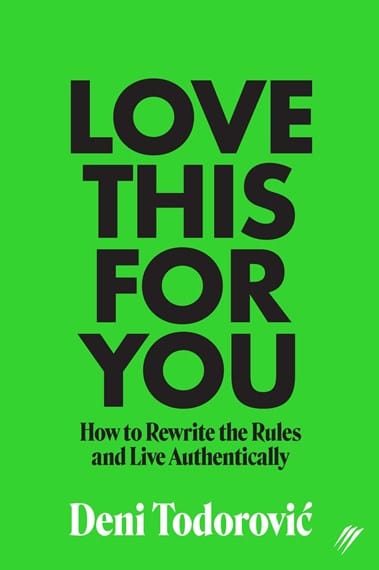
I just finished this excellent book from Deni Todorovic (they/them) who I’ve followed on Instagram (@stylebydeni) for a number of years now. Deni, a LGBTQI+ activist, is such a breath of fresh air. I originally started following them for the fashion, but I’ve stayed for the education, heart and authenticity. This book has all of that, and more, in spades. – Madeline Hislop
How Many More Women by Jennifer Robinson and Keina Yoshida
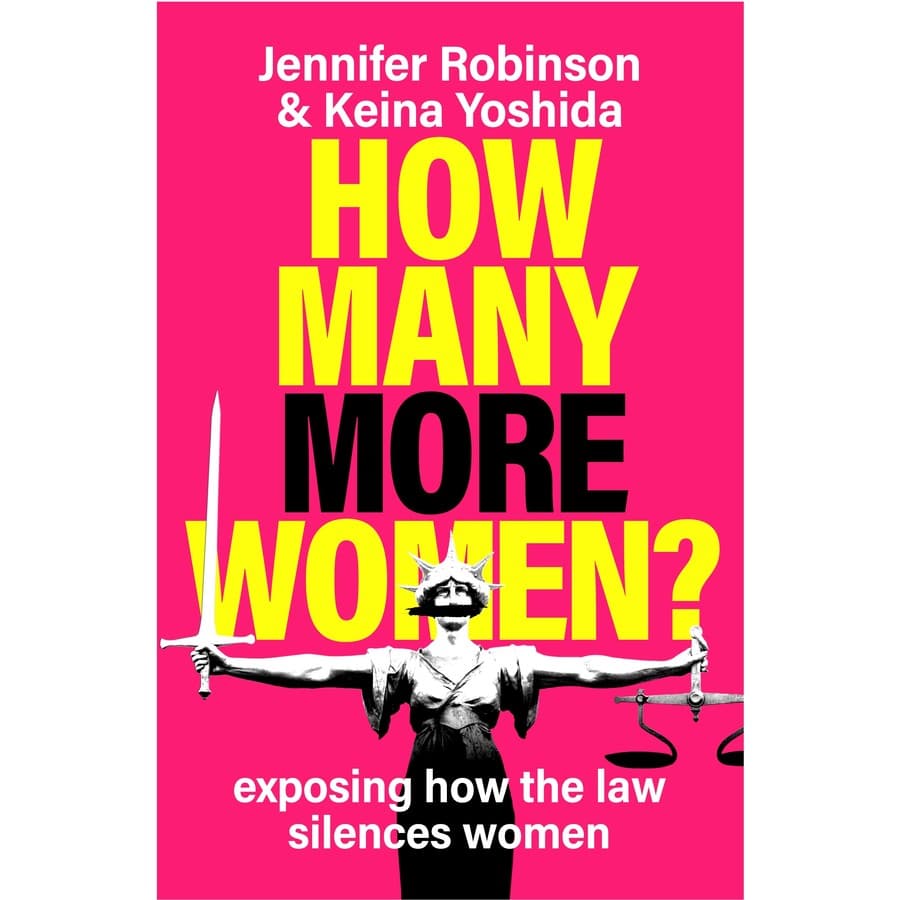
This is a timely and important book from human rights lawyers Jennifer Robinson and Keina Yoshida, examining how the law silences women. The book goes into examples Women’s Agenda readers would be well familiar with, including a chapter on Amber Heard (whom Robinson successfully represented in the UK, following Johnny Depp’s defamation action against The Sun). The book is powerful and accessible and creates an important guide to understanding how the courts are being used to silence women, in Australia and overseas. I recently spoke to the authors for The Women’s Agenda Podcast, with Yoshida sharing during that conversation thoughtful questions regarding the state of where we’re at: “How many more women need to be raped before things change?” she asked. “How many more women will be sued for defamation before things change? How many more women need to accuse a man of abuse or harassment before we’ll believe her? How many more women have to make accusations before a media organisation publishes a story about this particular person?” – Angela Priestley
BOLD TYPES: How Australia’s First Women Journalists Blazed A Trail
When a book documenting the history of Australia’s best women journalists arrived at the office, how could this not become an instant hit? Patricia Clarke outlines the names to know and remember, highlighting how women have defied the gender barriers to work their way up in a male-dominated profession where so often in newsrooms they face disgusting sexism and harassment, as well as editors, colleagues and readers who aren’t always open to hearing/reading/learning from a woman. Patricia is a trailblazing journalist herself, having started her career in the mid 1950s, and she skillfully researches and writes about the women who’ve pioneered across media, penning stories of Australia’s first female foreign correspondent (Anna Blackwell), the first female war correspondent (Edith Dickenson) and Flora Shaw, who shared the first reports from colonial Australia. Amy Remeikis has penned an excellent introduction to the book, noting how women have and continue to face double standards constantly — “ask the hard questions, but don’t interrupt” etc. -Angela Priestley
Quarterly Essay, Lone Wolf: Albanese and the New Politics by Katharine Murphy
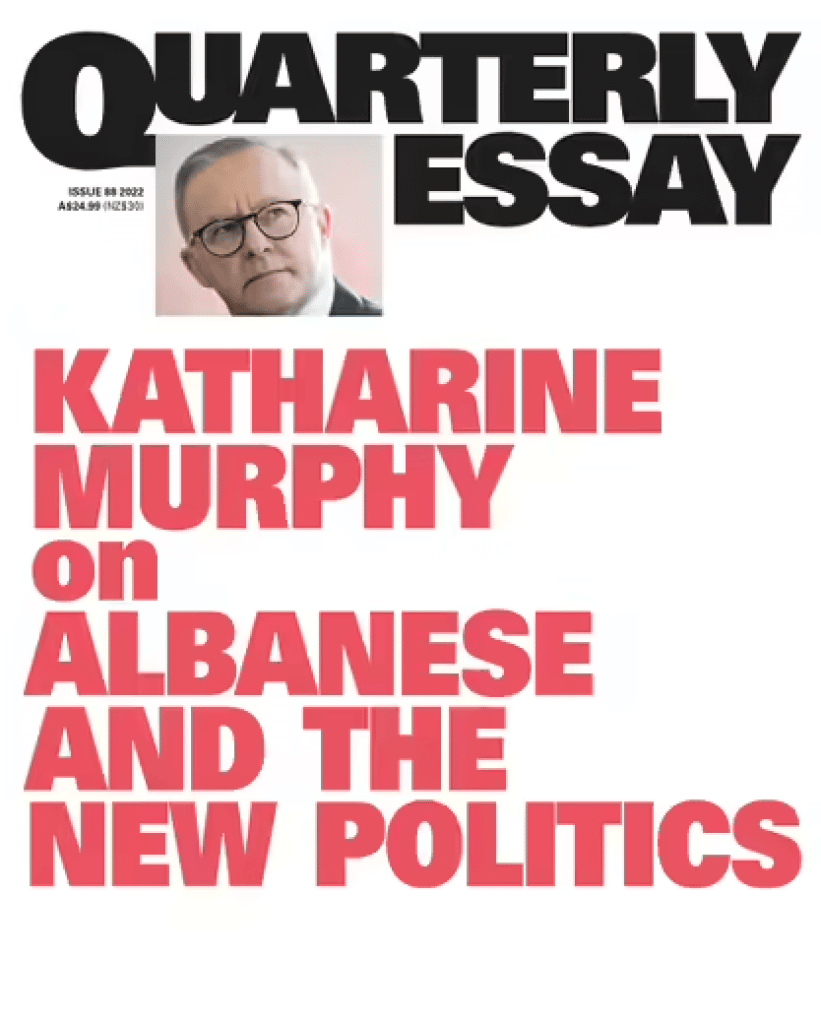
Lone Wolf is an in depth, truly human analysis of Australia’s Prime Minister, Anthony Albanese. Through Murphy’s masterful storytelling, she reveals a leader at the forefront of change—a deviser of “strategies of inclusivity”, who won over voters in the 2022 election with progressive reform. – Tarla Lambert
First Nations Food Companion by Damien Coulthard and Rebecca Sullivan

This is the first book I’ve ever read which does justice to the rich food culture of Aboriginal and Torres Strait Islander people. From Bunya nuts to Warrigal greens, this book shares all the myriad ways Australia’s vibrant and delicious native ingredients can be used in easy, accessible and beautiful recipes. – Tarla Lambert
First, Cream the Butter and Sugar by Emelia Jackson
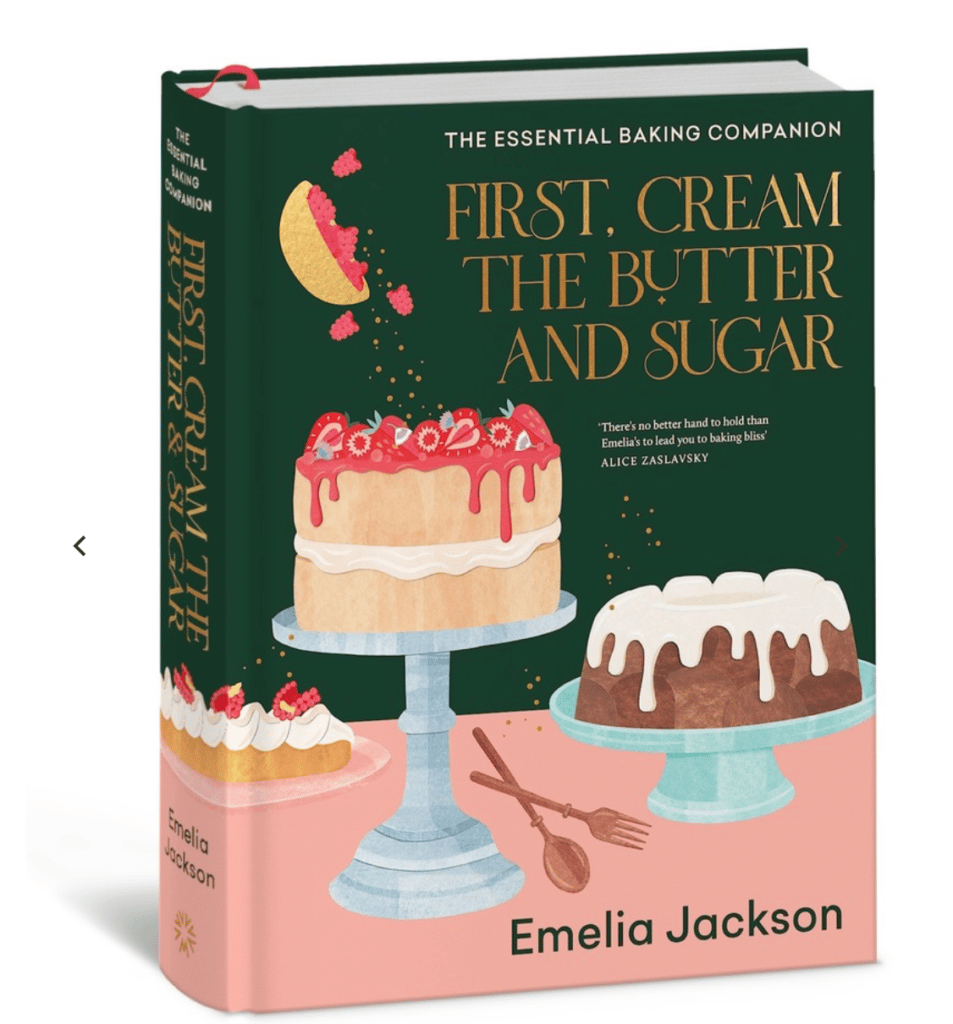
For anyone who bakes for therapy as I do, this book is the perfect companion. It’s packed full of epic recipes on a sliding scale of easy peasy to Masterchef on steroids. DO NOT bypass the chocolate mousse tart. – Tarla Lambert
I’m Glad my Mom Died by Jennette McCurdy

I couldn’t put this memoir down; it was so raw and filled with dark humour. You don’t have to be super familiar with Jeannette to get something out of this since she touches so honestly on the topics of child stardom, eating disorders and the complicated relationship she had with her mom. – Brianna Boecker
Why I’m No Longer Talking to White People About Race by Reni Eddo-Lodge

This book is a powerful statement on the extent of racism that underpins our modern world. While it is confronting and uncomfortable, it is also informative and necessary. Not only does it tackle the importance of an intersectional lens, it challenges the perception that racism in the UK is far less problematic and severe as it is in the US. This can also be applied to Australia. Reni also brilliantly expresses the burden of being a black woman constantly pulled into having discussions of race with white people – a point of which seems so blatantly obvious to many POCs, which makes it all the more relatable. – Allison Ho
The Best We Could by Thi Bui
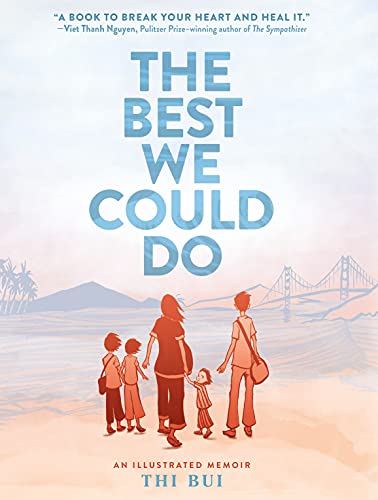
This is the first graphic/visual novel I have ever picked up as an adult. And it did not disappoint. I often get distracted by graphics, but in this case, it really helped elevate the story. Bui created something so beautiful and honest, and I was an emotional wreck by the end of it. I really resonated with her story, particularly as the daughter of Vietnamese refugees whose escape story is eerily similar. This is a very impactful read, and the way Bui recognises her parents’ sacrifices through her own motherhood journey, makes this book timeless. – Allison Ho
Violent Phenomena, edited and introduced by Kavita Bhanot and Jeremy Tiang

Translation and the craft of literary translation is something I’ve become so obsessed with over the past 12 months. This collection of essays reveals some startling, insightful truths about what it’s like to work as a literary translator as a person of colour. It fundamentally changed my views about so many things – from what good literature means, to colonialism, racism, gender politics and geo-political influences on culture. The book is published by an important printing press, called Tilted Axis, which publishes books translated from Asian languages into English. – Jessie Tu
The Story of Art (without men) by Katy Hessel
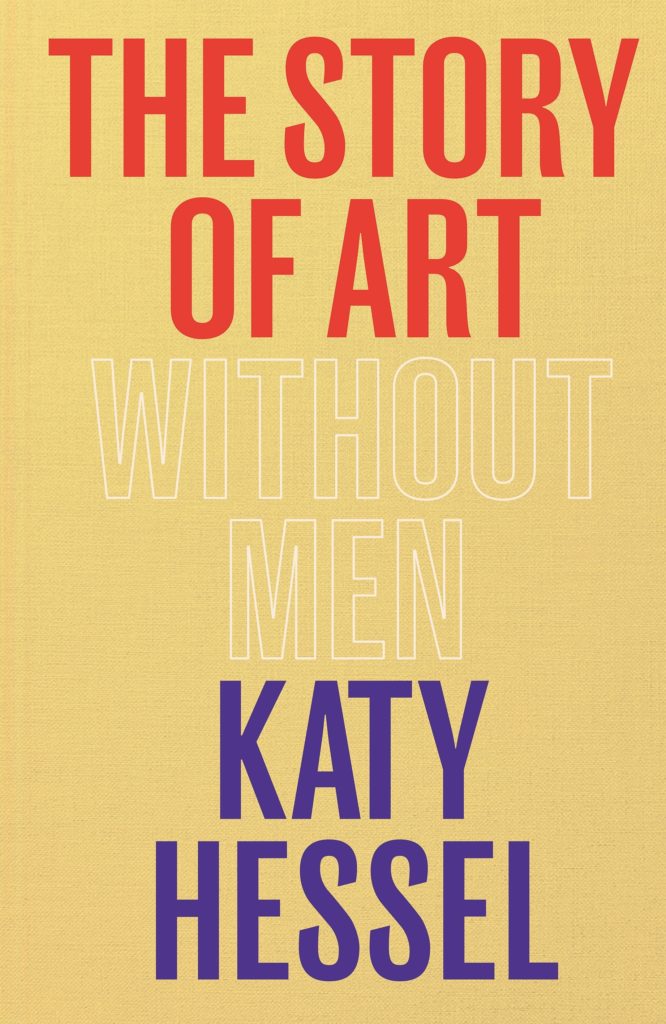
I am always mourning the fact of how little respect women and gender non-conforming artists get compared to men – throughout history, if you’re not a man, you’re just not taken as seriously, or paid as much for your work. Hessel’s book gives the time, effort and respect usually afforded to male artists to the other sexes – chronicling the ‘forgotten women artists’ from centuries ago, to more contemporary times. I found this book immensely powerful and so, so urgent. – Jessie Tu

